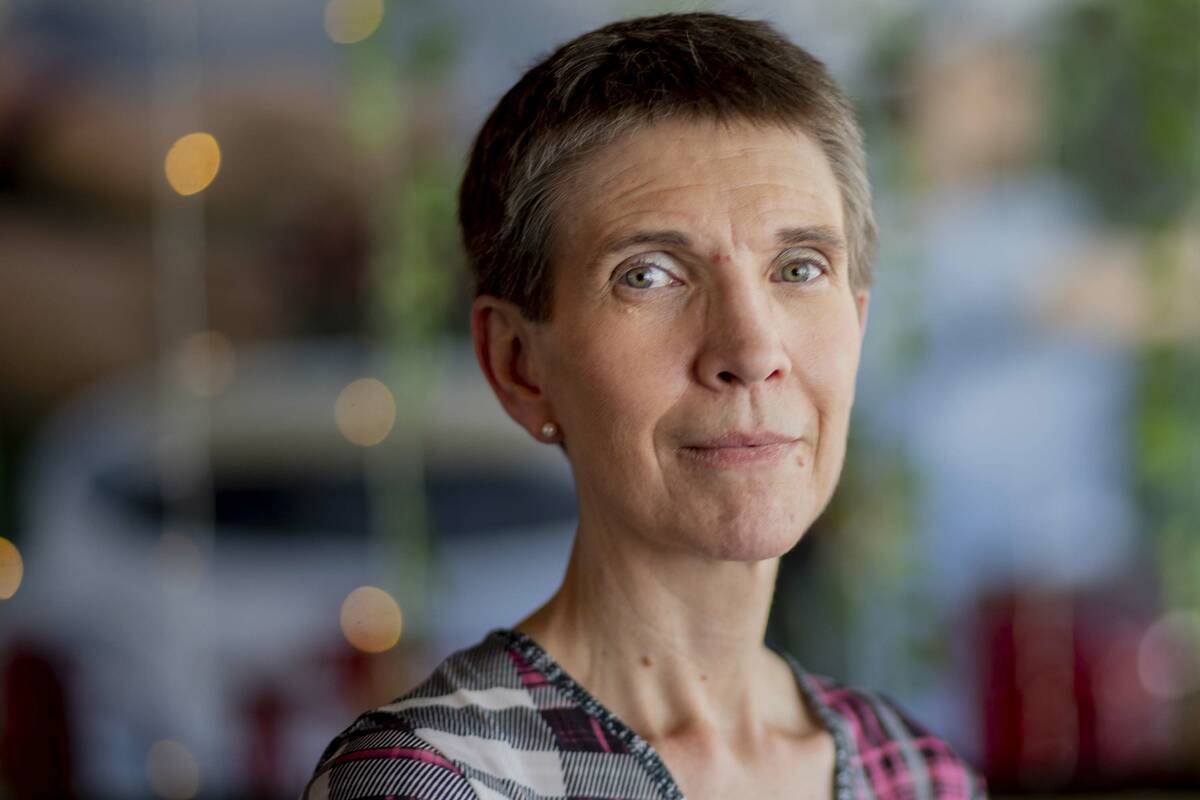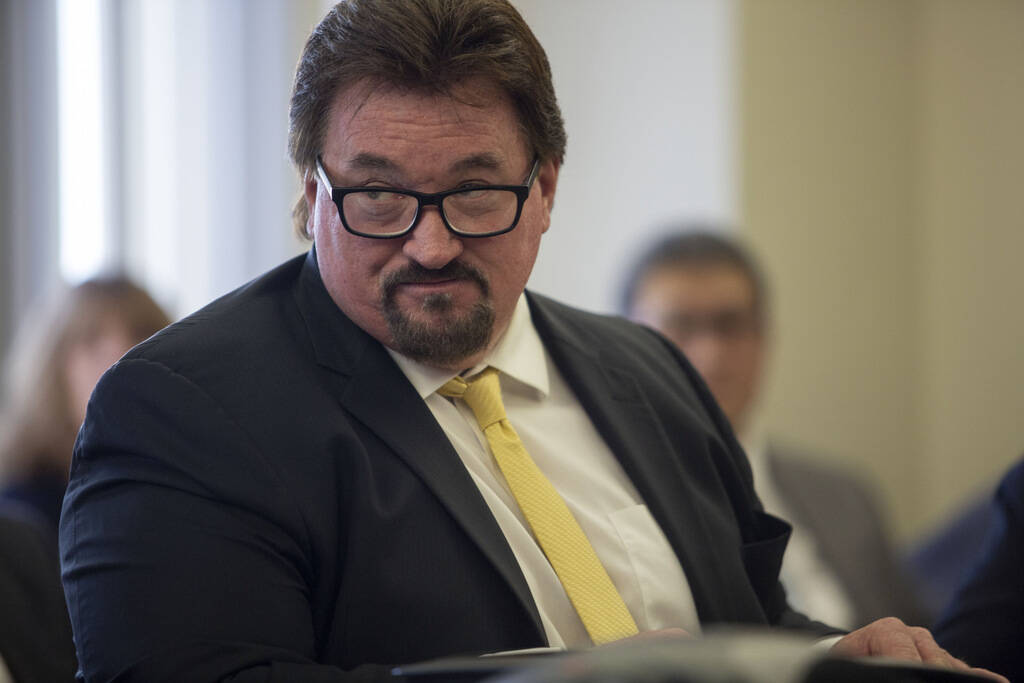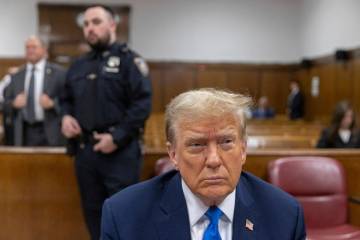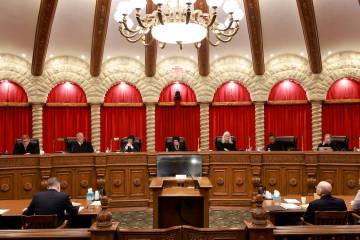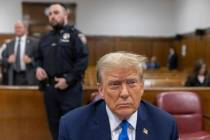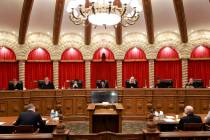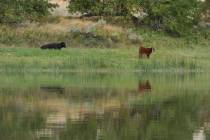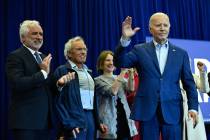Both parties oppose November’s ranked-choice ballot initiative
Both Democratic and Republican parties seem to oppose the November ballot initiative that would implement open primaries and ranked-choice voting.
The group behind the initiative thinks that’s a good sign.
The ranked-choice ballot measure — which will appear on the November ballot as Question 3 — would allow all voters to participate in the primary — regardless of party — with the top five candidates moving on to the general election, no matter their political affiliation.
Then, voters in the general election would list their choices in order of preference.
If one candidate earned more than 50 percent of the general-election votes, they win. If not, the candidate with the least number of first-choice votes is eliminated and their votes get distributed to the second-choice candidates. The ballots are then adjusted and the votes tabulated again, until one candidate gets 50 percent and is declared the winner.
Because the Question 3 ballot initiative would amend the state constitution, it would have to pass this November and then again in 2024 for it to take effect in the 2026 election cycle.
“It puts more power into the hands of voters,” said Sondra Cosgrove, a representative with Nevada Voters First, the political action committee spearheading the effort.
Groups have tried to block the initiative from moving forward, but the state Supreme Court voted in June to allow the measure to move forward.
Neither side is happy about it.
“They want — they being the other side — want to have jungle primaries. You do not want that,” said Nevada Republican Party Chairman Michael McDonald during a Mt. Rose Republican Women Dinner on June 29. Audio from the dinner was provided to the Las Vegas Review-Journal.
“Because that means if we have two Democrats that come out one and two, that’s who is going into the general (election). Not a Republican. Not a Democrat,” McDonald said.
Dan Mason on the KKOH’s Dan Mason Show, a Republican talk radio show in Nevada, also criticized ranked choice voting on Aug. 2. He said he was previously “intrigued” by the initiative because he does not think the primary system works particularly well, citing weaker turnout than general elections as well as the increasing number of independent voters not having a say until the general election.
But he said he is leery of changes to the constitution. “Once it’s there it takes an awful lot to take it out again, and something like ranked choice voting, which most people I think consider is still kind of an experiment, once it’s there, getting rid of it would be hard,” Mason said. “I don’t know why we have to change the constitution to try it, but that’s the way it’s going.”
National opposition
National conservatives have also voiced their opposition to ranked-choice voting. Former President Donald Trump slammed Alaska’s new ranked choice voting system, calling it “ranked choice crap voting,” in July 2022, according to Alaska Public Media.
“You never know who won in ranked choice. You could be in third place and they announce that you won the election,” Trump claimed, “It’s a total rigged deal. Just like a lot of other things in this country.”
U.S. Sen. Tom Cotton, R-Ark., also opposed it, saying on Twitter that “Ranked-choice voting is a scam to rig elections.”
He and Trump were referencing Alaska’s special election at the end of August in which Democrat Mary Peltola defeated Republican former Gov. Sarah Palin. Alaska voters approved a top-four ranked-choice voting initiative in 2020.
Cosgrove said the problem was that Palin told her folks to only vote for her and no one else, but she should have gone around and asked supporters of other candidates to make her a second-choice, too.
Confusing voters
Nevada’s Democrats, including Gov. Steve Sisolak and U.S. Sens. Catherine Cortez Masto and Jacky Rosen, argue that the initiative would be confusing to voters and lead to more errors.
“We must protect access to the ballot box for every Nevadan. This proposal would make voting more complicated and difficult at a time when we should be encouraging everyone to participate in our democracy,” Cortez Masto said in a statement.
“In Nevada, we’ve protected the right to vote and made it easier and safer than ever for eligible Nevadans to cast their ballots; because of efforts, our electoral system is ranked one of the best in the nation. We should be finding ways to continue our progress, not pushing a rushed constitutional change that would make our system more confusing, error-prone and exclusionary,” Sisolak said in a statement.
Rosen thinks ranked-choice voting would also disproportionately impact communities of color.
“I’m opposing Question 3 because this risky and experimental proposal would fundamentally undermine our democracy and lock these confusing election changes into our state Constitution,” Rosen said in the statement.
Clark County Registrar of Voters Joe Gloria said previously that while he is neither for nor against the initiative, he thinks voters will be able to learn and adjust.
“We don’t give the general public enough credit. They learn,” Gloria said, such as when voters adapted to the vote-by-mail changes in the 2020 election or when they switched from punch-card ballots to voting on computers.
Losing power
Cosgrove said she thinks Democrats and Republicans oppose it because they think the initiative will “take away power from their party.”
“They have formulas for how they want to run elections, and we’re going to disrupt that formula in pretty much every way,” Cosgrove said.
Parties will have to come up with a new formula, she said. Candidates will have to ask for second-choice votes, polling will be more difficult and campaigns will have to be more interactive and appeal to nonpartisan voters, Cosgrove said. It will overhaul the way campaigning was previously done.
“It’s going to be work for parties, but that’s OK because people have a constitutional right to vote … on ballot questions. Parties don’t have the constitutional right to run or manage elections,” Cosgrove said.
If the people decide there’s a better way to run elections, “then we have a right to say that and parties need to adapt and come with us,” Cosgrove said.
“We joke around that if both sides are mad then it must actually be the right thing to do. We are annoying both sides, and it’s not going to advantage either side,” Cosgrove said.
Contact Jessica Hill at jehill@reviewjournal.com. Follow @jess_hillyeah on Twitter.



